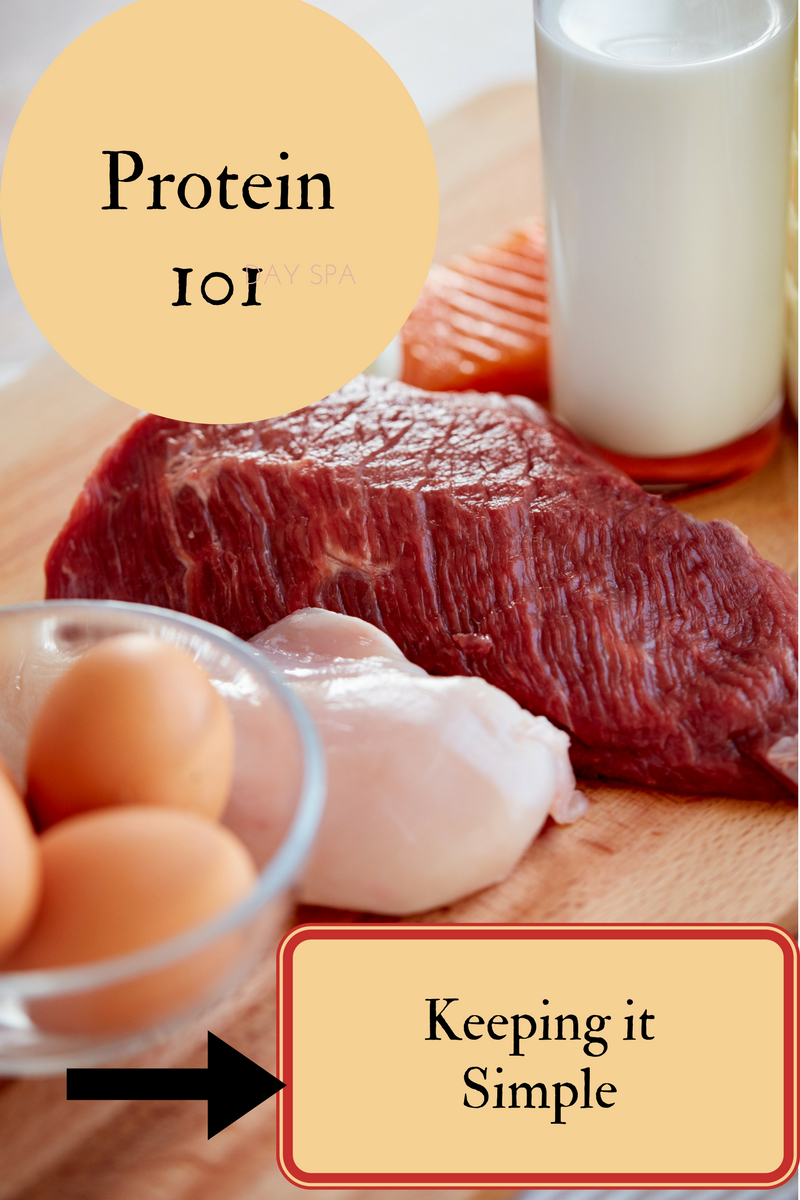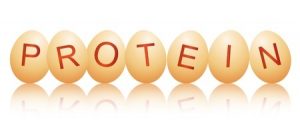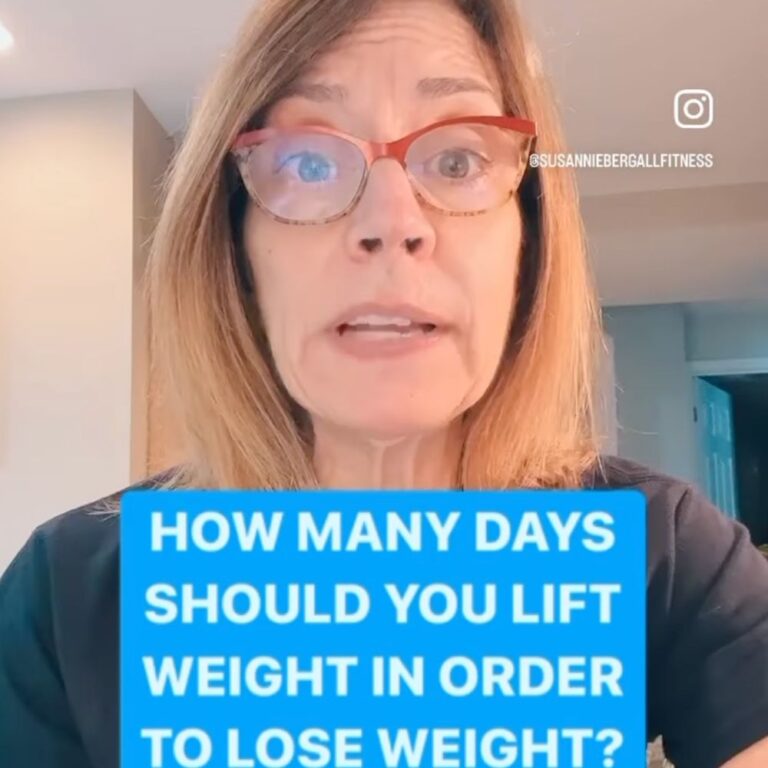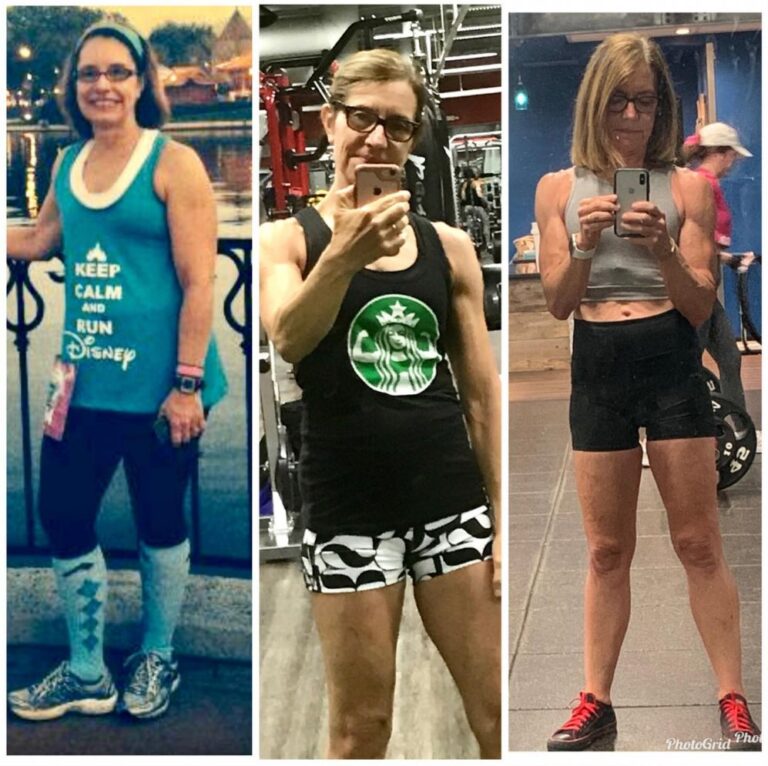
Protein 101
Protein is a huge point of discussion in the fitness world. There is so much information out there it can be overwhelming and sometimes confusing.
Let’s simplify it all. Everything you need to know about protein right here.
Let’s go

What is Protein?
Protein is made up of amino acids which our body needs to function. Protein is considered a macronutrient – a nutrient that your body needs a lot of. The other two macronutrients your body needs are carbohydrates and fat. The term “Macros” refers to Protein, Carbohydrates and fats
Since there are macronutrients, there are also micronutrients. Micronutrients are vitamins and minerals – nutrients that the body only needs small amounts of
Why is protein so important? Or in other words, how is Protein going to help me lose fat?
- Protein curbs hunger. It will keep you feeling fuller for longer periods of time . You won’t be thinking about reaching for that bag of chips and will be saving calories. Fewer calories = weight loss
- Protein requires more energy to digest – you will burn more calories digesting protein than the other macronutrients.
- Protein is the foundation for building lean muscle. So why is building lean muscle so important – especially as we get older? When you are in a caloric deficit (consuming less calories than your body needs) your body will go to stored fat as its energy source (Good!!) But your body could also go to muscle mass for its energy source (Bad!!) Consuming adequate amounts of protein will help to preserve muscle mass and keep the body using stored fat as its energy source. Boom! The more muscle mass we have the more efficient our body becomes at burning calories. As we get older we tend to start losing muscle mass anyway, so protein plays a huge role in maintaining and adding to what we have
- If your goal is to get stronger and build lean muscle mass, protein is NOT an option – it is a requirement.
Other Reasons to Consume more Protein:
+Helps maintain bone mass which can = lower risk of osteoporosis
+Protein is not only an important building block for muscles and bones, but also for cartilage, and skin
+There are studies that show that protein can help lower blood pressure and LDL and Triglycerides (1)
+Can help your body with repairing injuries
How much Protein should I Consume?
There are a lot of varying factors, but as a general rule .7 – 1.0 grams of protein per pound of body weight is a great place to start. If you are very active and strength train a lot, maybe a little more. If your aren’t as active (yet 😉) maybe a little less.
If you have significant weight to lose, starting with 1.0 grams of protein per pound of desired body weight.
Consuming too much of anything can cause weight gain. Tracking your protein and calories is a great way to stay on top of it. Tracking is not as hard as you might think, and it is an effective way to meet you calorie and protein goals
Most people are falling short on protein intake – especially as they get older. If you were to just change one thing about your nutrition right now, track your protein, and get it to.7- 1.0 grams per pound of body weight. Just changing that you will notice:
✔️ You will stay fuller longer
✔️You will save on calories as a result which can = weight loss!!
✔️You find your “afternoon crashes” will go away
✔️Less late night snacking desire
What foods are high in Protein – A simple go-to list
Chicken Eggs Beans
Turkey Greek Yogurt Protein Shakes
Beef Cottage Cheese
Fish Milk
Takeaways:
-Protein is one of our body’s building blocks – it essential for our body to function
-Will help you stay fuller longer, will build muscles, and bones
-.7 – 1.0 grams of protein per pound of bodyweight an amount to aim for
-Try tracking your calorie and protein intake to stay on track
Protein does not have to be confusing. Well planned protein and calorie goals along with following a well designed exercise program can make all the difference.
Still have questions? Shoot me an email : ssniebergall@gmail.com




